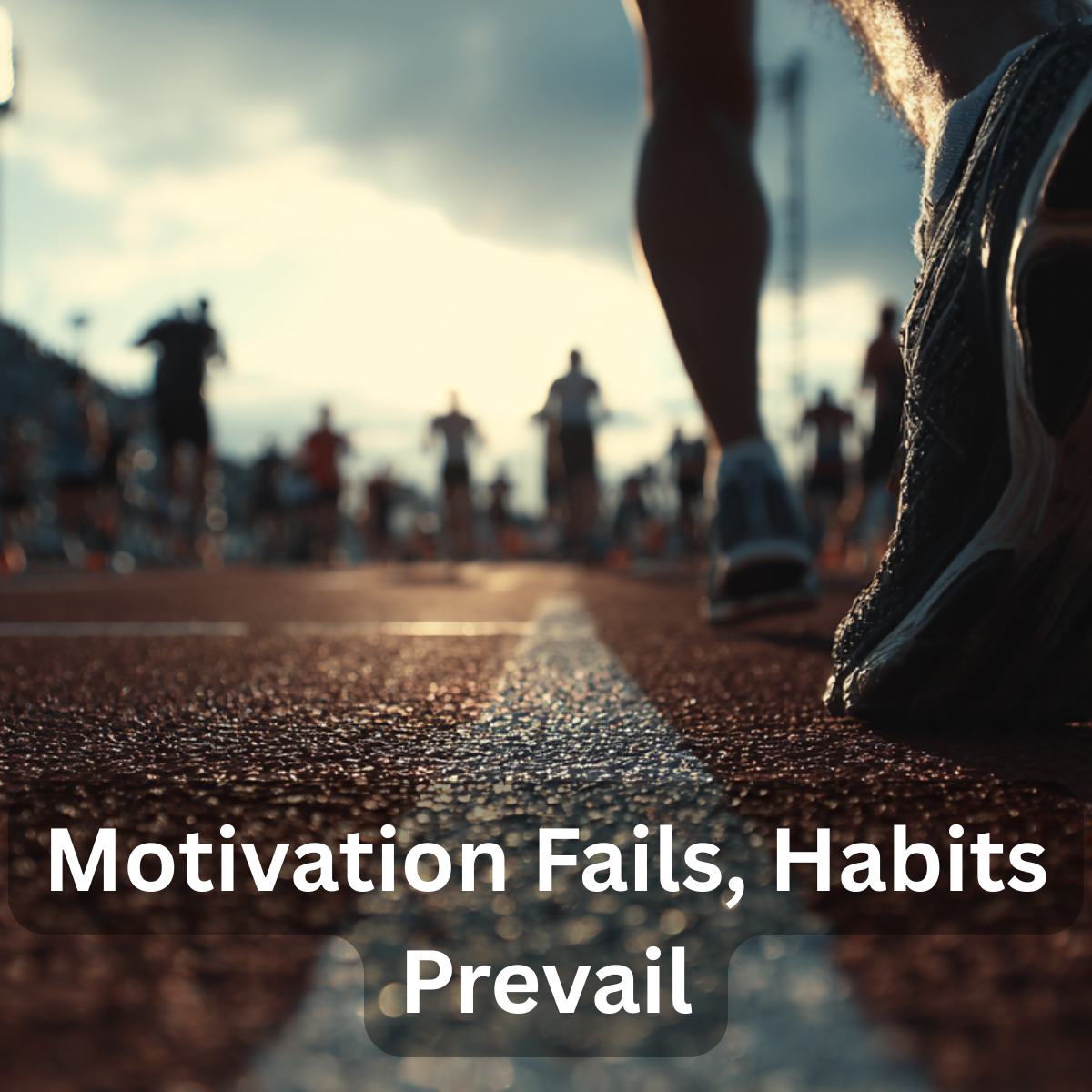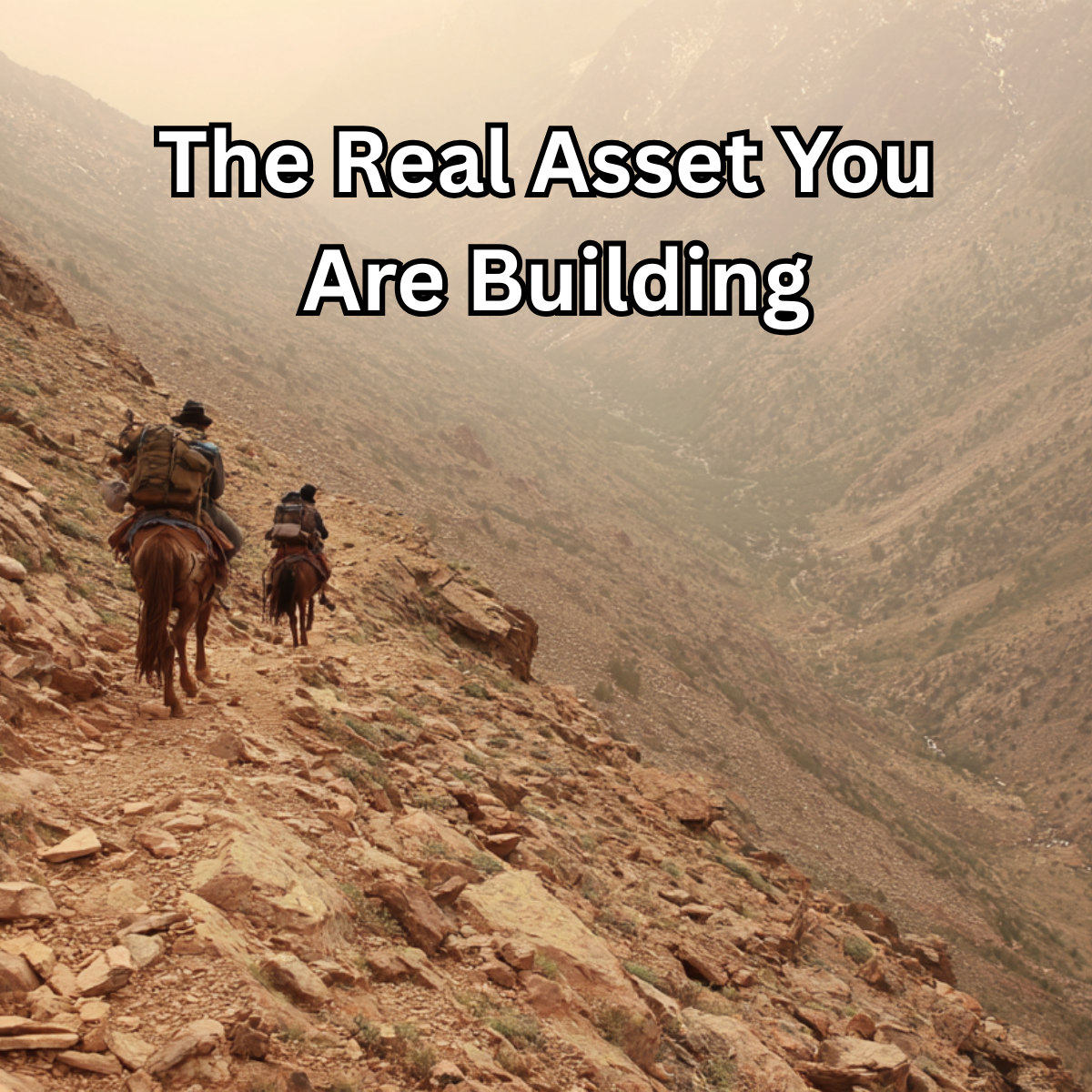I used to wait for a feeling before I moved. I thought that the right song, the right sunrise, or the right surge of emotion would finally push me into doing the thing I said I would do. Then I noticed an uncomfortable pattern. The feeling showed up less often than I hoped, and even when it did, it faded before the work was done. It became clear that motivation is a wonderful guest and a terrible landlord. You can welcome it when it visits, but you cannot hand it the keys.
If you are like me, you have had days when your energy rises like a tide. On those days you can make bold promises. You set a goal, you load up a plan, and for a moment it all seems possible. Then a normal day arrives. Your sleep is short. Your inbox is loud. Your body feels heavy. The plan that looked brave now looks fragile. This is the gap where most efforts die. Not because we lack desire, but because we trusted a passing emotion to carry a lifelong load.
Habits do not care if you feel inspired. They do not consult your mood. They are quiet agreements made with yourself, practiced often enough to become almost automatic. Where motivation spikes, habits flow. Where motivation argues, habits act. Where motivation evaporates, habits remain.
I did not begin to change until I accepted that I had to build a life that works on ordinary Tuesdays. Not perfect days. Not first days. Ordinary days. This required a shift in the questions I asked. Instead of asking, How can I feel like doing this, I began to ask, How can I make this easy to start, hard to avoid, and simple to repeat. That is a different kind of design. It is a design that honors human nature.
Here are a few principles that helped me move from chasing motivation to building habits that prevail.
Start small enough to be beneath resistance. If your starting point still needs a pep talk, it is not small enough. Two push ups becomes five, becomes a walk around the block, becomes a quiet identity shift. Small acts are not symbolic. They are functional. They get you moving when your mind is slow to agree.
Anchor the habit to a cue you already respect. Do it after you brush your teeth. Do it when you set your bag down by the door. Do it right after you turn on your computer. The cue becomes a bridge. You do not think about crossing it. You find yourself across.
Lower the cost of beginning. Set the shoes by the door. Open the document the night before so the cursor is waiting for you in the morning. Place the book you intend to read on the pillow. Make the first step so gentle that you feel a little silly resisting it.
Measure only what encourages tomorrow. I have tracked streaks, and I have broken streaks. The win is not the perfect record, it is the return. Use a paper calendar, place a simple mark on the day, and let the page remind you who you are becoming. If you miss, mark the next day without drama. Never miss twice is a friendly guideline, not a verdict.
Treat friction as a design problem, not a character flaw. When the habit fails, do not accuse yourself. Inspect the environment. Is the phone pulling you away. Are you starting too late in the day. Are you attempting this in a chaotic location. Change the setting, change the time, remove a distraction, or shorten the session. You are not weak. The design is weak. Fix the design.
Protect identity more than outcomes. When you say, I am a person who writes daily, you move the focus from a single great session to a consistent practice. Some days you will write a paragraph, other days a chapter. Either way you kept the promise. Identity is the root. Outcomes are the fruit.
There will be times when you feel a surge of motivation. Do not waste it. Use it for setup, not for heroics. When the wind is at your back, move furniture. Prepare your space, simplify your process, precommit the next step. Then when motivation fades, you have already lowered the bar for your ordinary self to step over.
This is why I love the idea of a daily commitment. One practice, done every day, becomes a quiet metronome in the background of your life. It beats through good days and bad days. It helps you recover from setbacks with dignity. When the day gets away from you, that small act becomes a way back. That is not just productivity. That is mercy. It reminds you that you are not a mood, you are a person who keeps promises.
If the phrase motivation fails sounds harsh, I do not mean that motivation is the enemy. It can be a friend. It can open the door. It simply cannot be the structure you live in. Habits are the structure. They are the frame that holds the weight of your real goals. They are the accumulation of many small votes cast for the person you intend to be.




